Digital 52 4️⃣1️⃣ - From Seed to Success: MotionLab Berlin's Path to Building a Hard Tech Community, Driving Awareness, and Achieving Impact.

Today’s story will take you to Berlin. What’s there? A very special space that has been advocating for more recognition around hard tech and hardware since its inception: MotionLab Berlin.
Makerspaces - Peer-to-Peer Learning
Read the full story of MotionLab Berlin on page 77 of "Around The World in 250 Coworking Spaces".
If there's one thing that a coworking space excels at, it's connecting its physical environment with a clear purpose and mission. But what does that mean exactly? Let's delve into today's featured space to find the answer. MotionLab Berlin is more than just a coworking space or a makerspace. It's a multi-purpose space with a specific mission: to raise awareness and provide support for all things related to hardware. While they could have achieved this through a website alone, having a physical space allowed them to accomplish something crucial from the very beginning: bringing together like-minded individuals and organizations who share their passion and align with MotionLab's vision and mission.
However, let's be realistic. Building such a vibrant space and community didn't happen overnight, especially in a world where software often garners more recognition than hardware. So, how did MotionLab manage to reach its current position? That's the story we're about to explore today!
➡️ A little refresher
Who’s behind the featured space?
Meet Christoph Neye, Fridtjof Gustavs and Chris Iwasjuta.
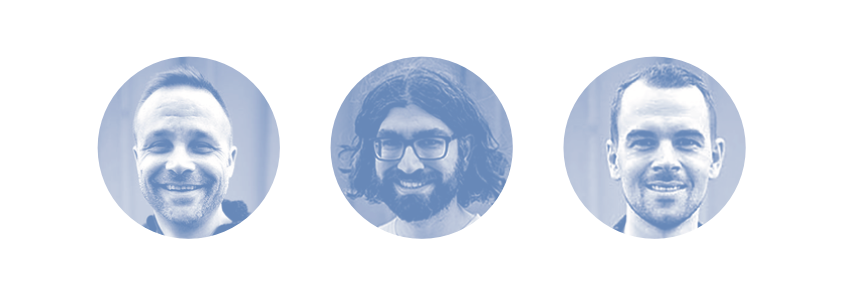
If you wonder how the trio ended up opening MotionLab, Christoph explained: “I had a vision to create a unique type of bike but faced rejection from manufacturers who dismissed my idea as foolish. Undeterred, I turned to FabLab where I met Chris, my first co-founder. His response was simple yet impactful: “Let's do it.” As we progressed with our project, we reached a point where FabLab's limited space and resources hindered our further advancement. In search of a larger facility, we sought out existing labs but couldn't find a suitable option. This led us to make the bold decision to establish our own lab. However, we recognized the need for business expertise to make this endeavor successful. Fortunately, Fridtjof, our second co-founder, was recommended to us as someone possessing the necessary business knowledge.”
➡️ Key Figures
- Opening year: 2017
- Size when they started: 4,500 sqm, 1 space, 1 city
- Size today: 2 spaces, 1 city
➡️ A little tour around MotionLab Berlin
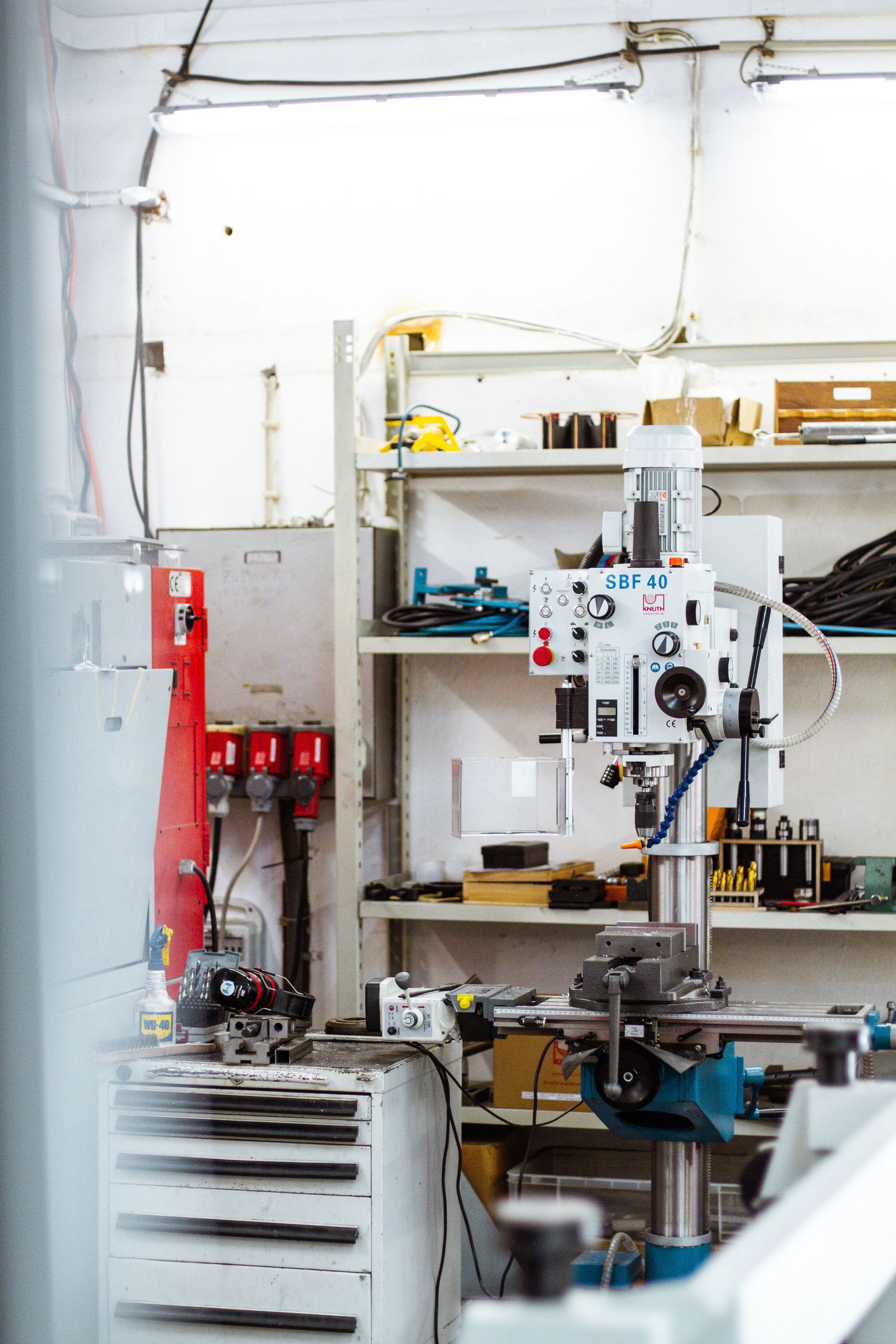
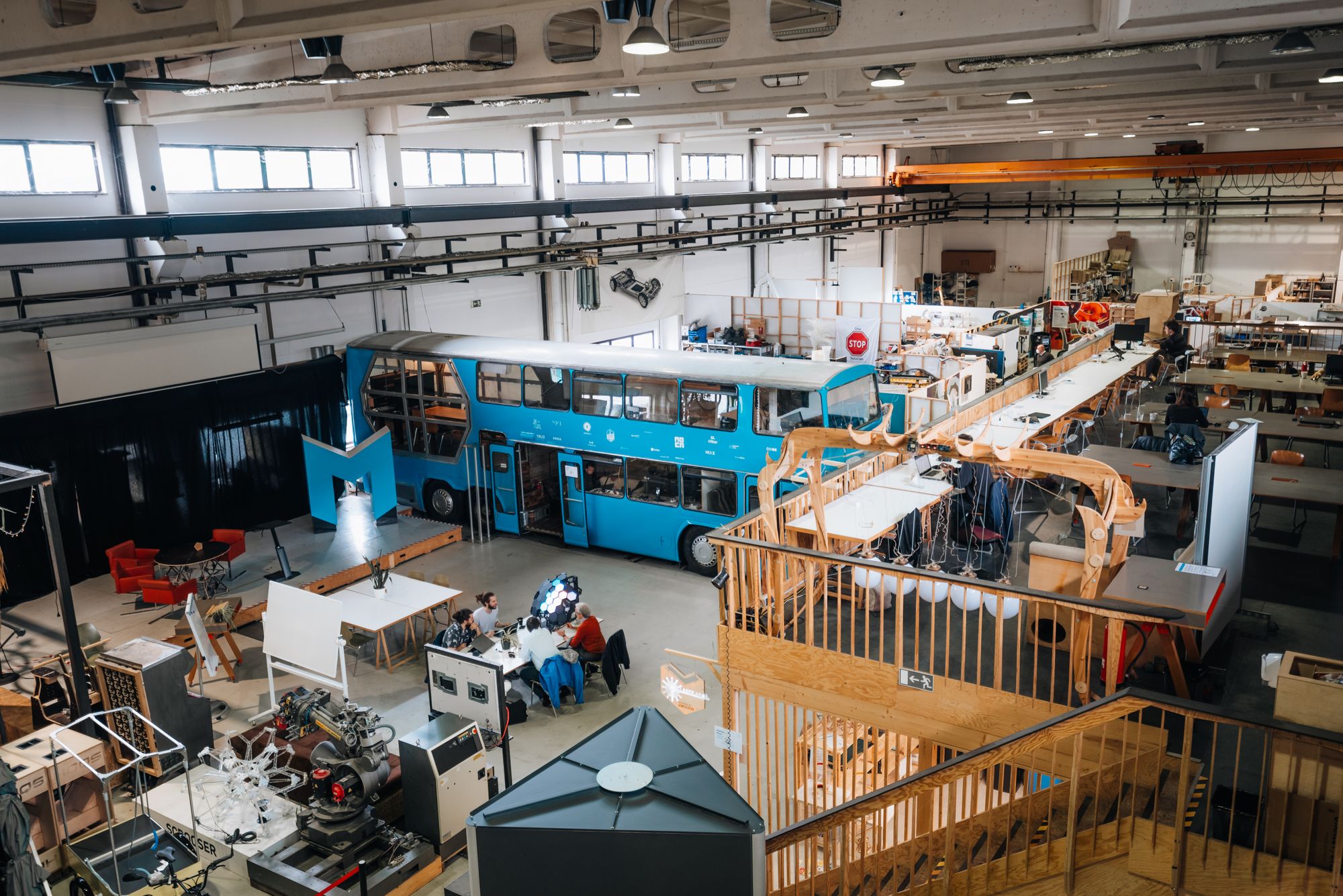
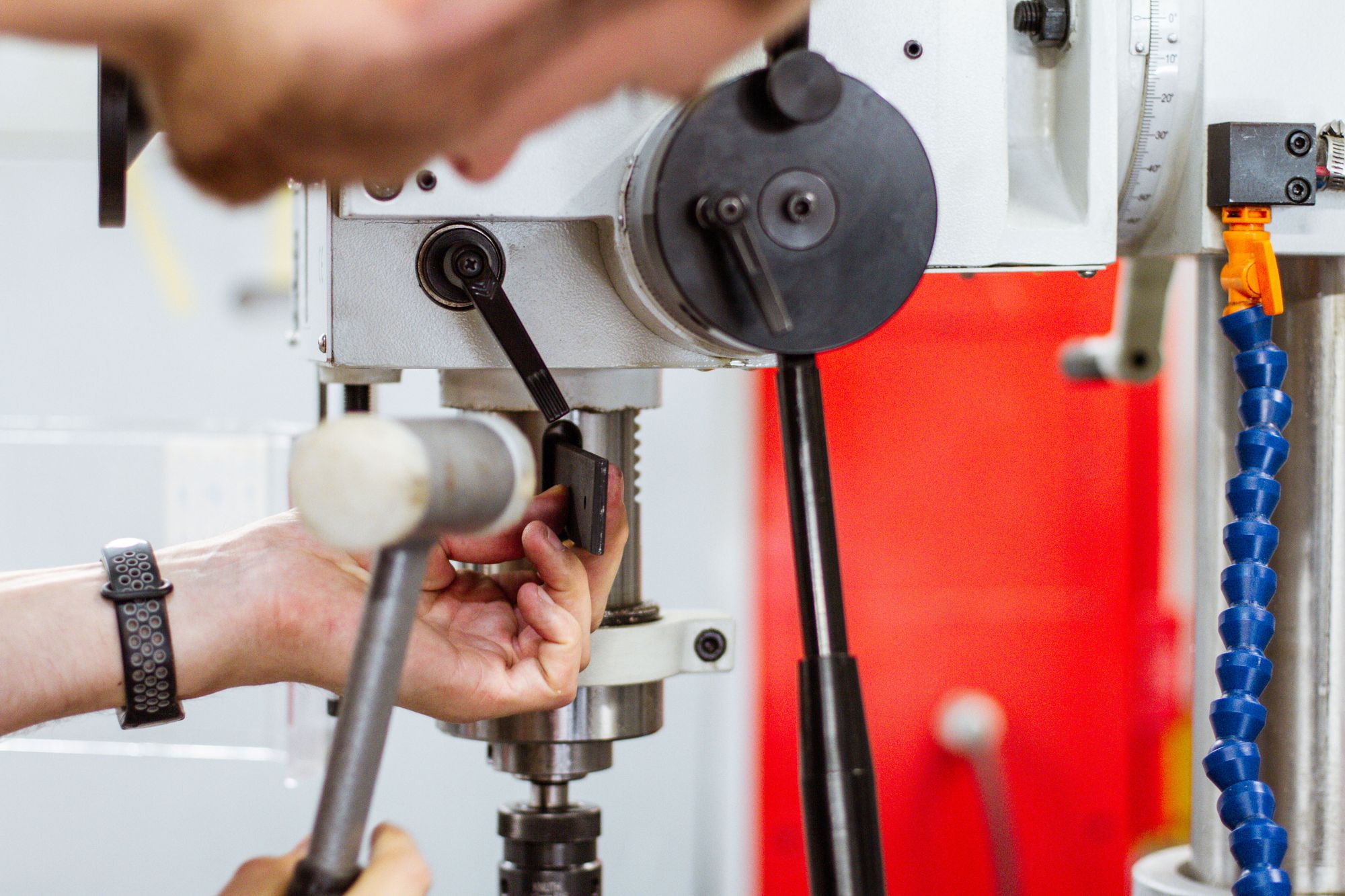
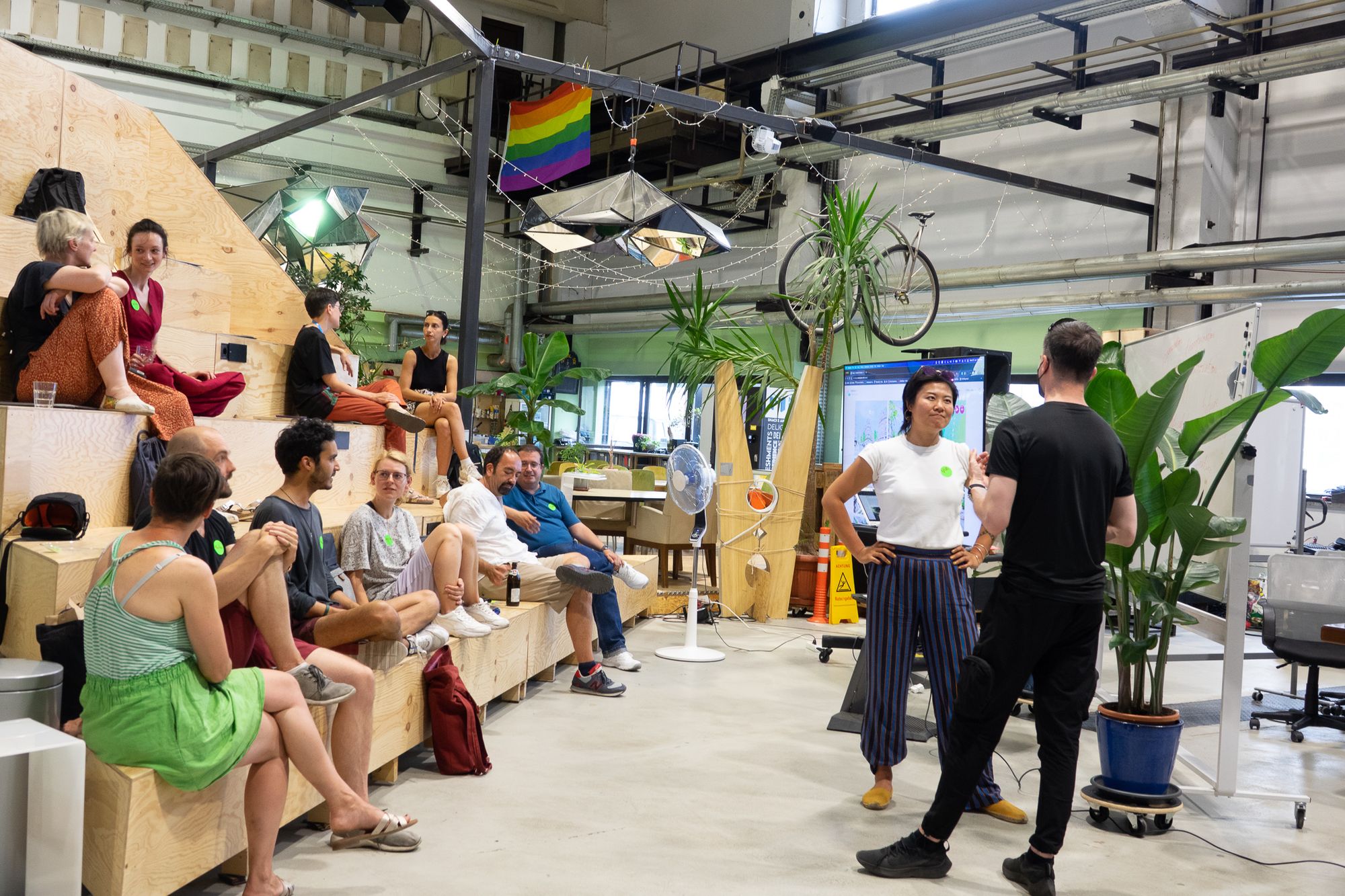
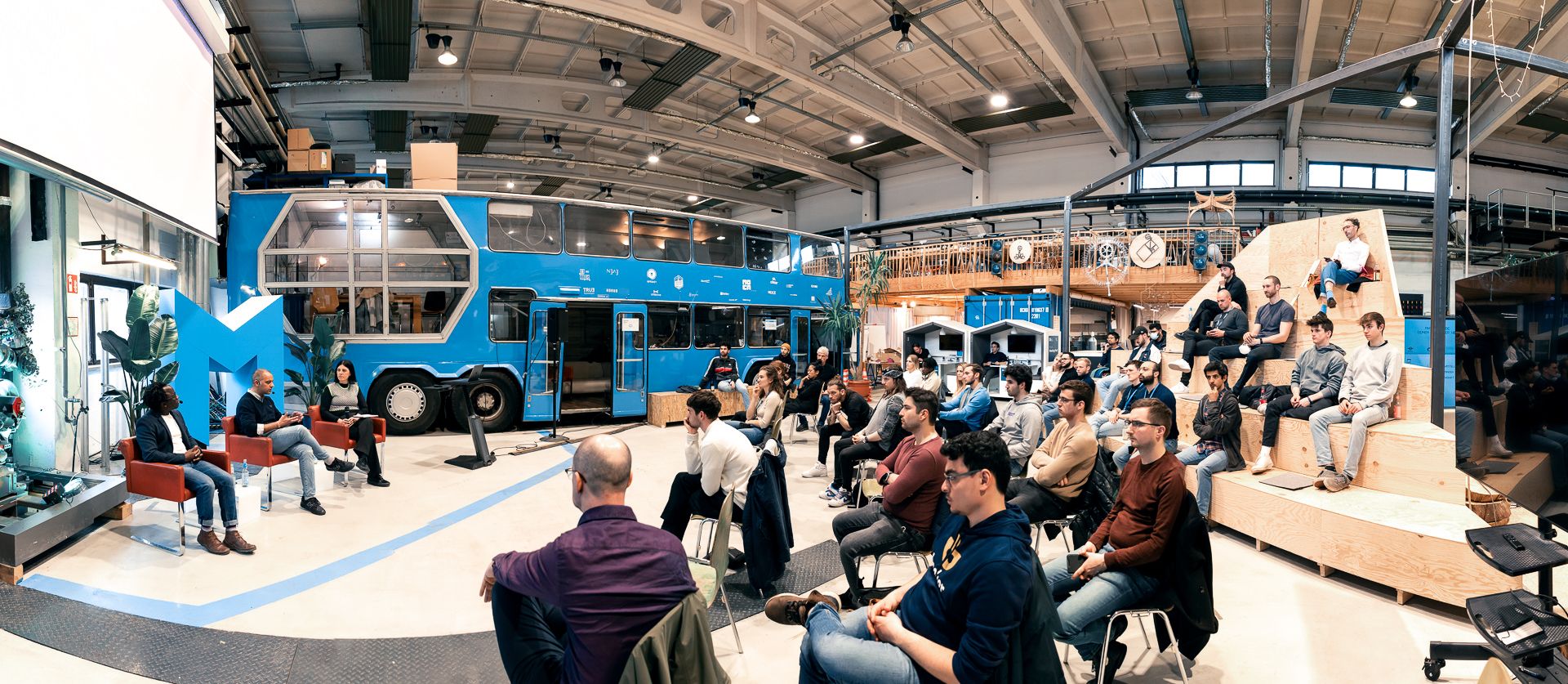
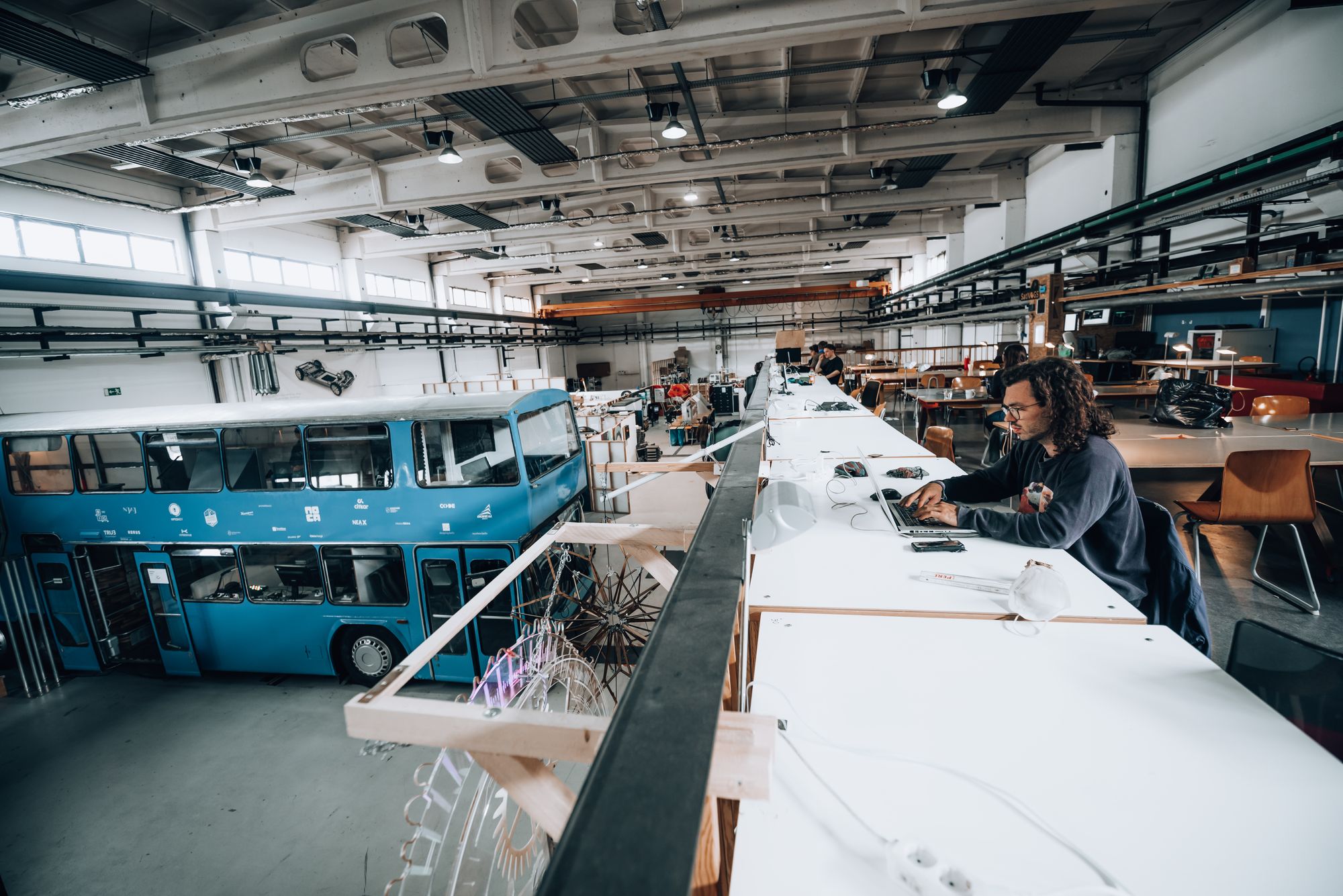
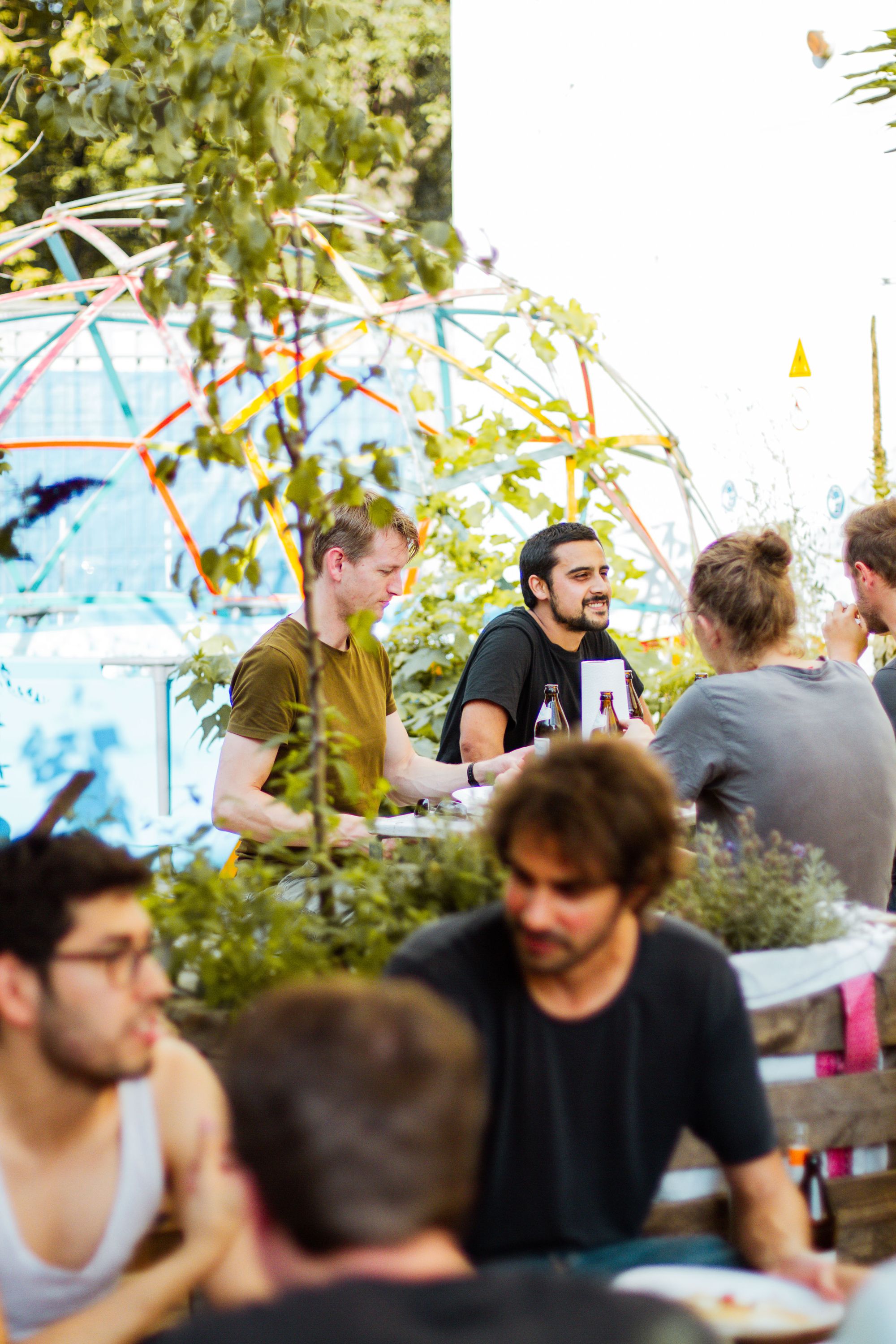
➡️ Behind-the-scenes
Things you didn't read in aw250cs.
As Christoph explained in our initial interview: “Our focus is hardware in mobility. As FabLab or Makerlab was a known name it seemed natural to us to combine these two: MotionLab.”
“We have a remarkable 12-ton double-decker bus that serves as a versatile combination of a meeting room, lounge, and tech center. However, after a few months of operation, we realized that we had initially placed it in the wrong location. The interesting challenge we faced was figuring out how to move the bus amidst the crowded hall.
The solution we devised was to start the bus's engine, which activated the compressor, allowing the airbrakes to be released. Then, with the collective effort of around 20 community members, we pushed the bus back and forth several times to reposition it. It was a unique experience for everyone involved, as it marked the first and likely the last time they would be part of starting a double-decker bus in motion.”
Keep reading to discover the big facelift MotionLab’s double-decker bus went through!
️
"The more spaces we have dedicated to these types of innovations, the better it is in supporting our mission. Each additional location contributes to our cause."
Nadine Obermeier, Head of Marketing at MotionLab Berlin
➡️ MotionLab Berlin Today
What is the current state of MotionLab Berlin? Well, as you are about to discover, a lot has been happening since the release of Around The World in 250 Coworking Spaces. The central theme underlying all these developments is growth. Not only has the space expanded in size (which did occur), but there has also been a surge in awareness, passion, and commitment to promoting and supporting the advancement of hard tech. In our recent conversation with Nadine Obermeier, Head of Marketing at MotionLab Berlin, we delved into the journey of how it all came together.
💫 Growing in awareness and in size.
Remember that double-decker bus story? Something magical recently happened that not only gave it a facelift but also supported MotionLab Berlin to get even more brand recognition from the outside world.
Drumroll please, we are celebrating in this follow-up interview the opening of MotionLab Berlin’s newest location! Located in the same city, but in a different neighborhood, the new space comes as an important component of MotionLab’s overall mission.
💬I’d like to start by asking you: what’s new at MotionLab Berlin since September 2021?
The last time you came to visit, I remember our big bus being grey back then, and I even have a picture of you and Oli next to it. We’ve painted it blue, the MotionLab Berlin blue to be precise.
Sometimes, when I meet new people outside of MotionLab, they often inquire about my workplace. When I mention MotionLab, their response is usually, “What's that?” I proceed to explain it to them, and they usually say “Oh yeah, the coworking space with the blue bus”. Hence, painting the bus turned out to be a fantastic idea for generating interest and recognition.
In addition, we've completely revamped our event space, which has proven to be extremely convenient for the numerous tours we host.
Last but not least, we've opened a brand new location since we last spoke. This is a major milestone for us and our biggest achievement to date but I know we’ll speak about that a bit later so I’ll stop here.
💬 Can I ask, where did the idea of painting the bus in Blue come from?
We use the color blue a lot because it's our brand color. One evening, while I was in the kitchen, I looked at the bus and thought, “It looks dirty. It doesn't look gray or fancy. It just looks dirty. We have to paint it.” The team responded by saying, “You're crazy. We can't just paint a bus blue. That's too much work. It's too expensive. No one will help you.” However, I was determined and replied, “Nope, I don't have any plans for the weekend. I'm going to do it on Friday.” We ordered the paint, and then I started on my own. Gradually, more and more people joined me, and in the end, it became possible. So, it was a really nice project combining my stubbornness and the support of the community.
Plus it went fast, It took around two days. We started on Friday evening and had everything done by the end of Saturday.
💬 You describe yourself as a hard tech innovation hub, can you explain to us what it means exactly?
To explain hard tech innovation, I think it's necessary to first clarify what “hardware” means since it's not a commonly used word. So, hardware refers to physical components that can be touched, but typically lack smart capabilities. For instance, a phone by itself is just hardware without intelligence. However, when technology is integrated into it, it becomes a useful tool for various purposes. This is where haptics comes into play. Haptics essentially combine hardware and technology, although it can be challenging to merge the two.
We didn't want to become just another coworking space focused solely on software development. Our aim was to emphasize hardware, but not exclusively as a workshop where people simply build things. We wanted to incorporate the tech component as well.
In the end, our goal is to provide a space where innovation thrives and creativity flourishes.
The process can be unpredictable, as individuals may not always anticipate the final outcome of their projects. Their initial ideas often evolve significantly throughout the development process. The term “hub” reflects the strong sense of community we foster within our space. We offer hardware, workshops, and the necessary tech infrastructure to support the journey from innovative ideas to reality.
💬As you lead all things marketing at MotionLab let me ask you: how did you raise awareness towards the outside world to what MotionLab was when you started?
I started about a year after the official founding of the company. There were already several startups and a few community members, but over the past four years, we have significantly grown the community. Initially, it was a bit challenging because the concept of MotionLab wasn't clearly defined. Each member, including the team, had a different vision of what MotionLab could be in the future. Therefore, it was crucial for us to establish a unified image or concept that we all believed in. Let me explain how we approached it.
We realized that it was really difficult to explain MotionLab to people in words, especially since so much was happening within the space. Instead, we wanted people to experience it firsthand. So, we started inviting them to events, meetups and also invited friends and acquaintances who were interested in building something. We hoped that their positive experience at MotionLab would inspire them to share it with others. And this happened a lot.
Additionally, we focus on telling the stories of our community rather than solely talking about ourselves. We believe that storytelling was more relatable and effective, as people can identify with those stories. For instance, we showcase cool teams working on robotics, alternative transportation solutions, or even rocket ships. This approach resonated well with people.
In the beginning, we were fortunate to have strong partners and advocates who made my job easier. MotionLab's location in the heart of Berlin, coupled with its cool and inviting atmosphere, attracted people naturally. I didn't have to come up with many arguments to convince them to visit—it was simply a nice and cool place that people wanted to see for themselves. We aimed to be genuine and authentic in our communication, avoiding creating a fabricated story. Instead, we focused on sharing real stories that connected with our audience, and this approach worked well for us.
From a marketing perspective, it was important for us to focus on a niche at the beginning. We initially targeted mobility-related projects, encouraging anyone working on mobility solutions to try out their ideas at MotionLab. As we observed a growing interest in hardware and hard tech in general, we gradually expanded our scope. However, we recognized that if we had tried to position ourselves as a space for everyone right from the start, it would have been challenging for people to identify with us, making things much more complicated.
💬 Have you noticed a difference pre and post covid on how to ‘market’ a space like MotionLab?
Yes. First of all, our space thrives on people who need a dedicated workspace because they can't work on their entire prototype in their small apartments in Berlin. Thankfully, we were fortunate enough to have the opportunity to keep MotionLab open throughout the pandemic. This meant that a few individuals could still come and work on their prototypes, and the sense of community remained strong. However, I noticed that during the COVID-19 period, people relied more on online communication. Some even opted to work from home, saying, “Hey, I don't need to come to MotionLab today because I can work from home.” This opened up spots for others since we had to limit the number of people to 50 or 100 per day. As a result, there was a lot of exchange and interestingly, it felt like the community became even closer during that time.
From our perspective, it was reassuring to see this because it affirmed our philosophy that software is remarkable and essential, but we cannot exist in today's world without hardware. The technology inside computers is amazing, but it requires hardware to function. The same goes for other innovations. However, I think many people overlook or underestimate this aspect when they think about innovation and technology.
The COVID-19 situation made it clear that when real-world problems arise, such as a pandemic or a crisis, hardware becomes crucial. This awareness among people helped us gain more general recognition even before the pandemic hit.
💬 MotionLab is a multi-purpose space, can you explain to us how you manage the experience for the different audiences that gravitate around the different purposes you offer?
It's a really good question, it got me thinking, but I believe the answer is quite simple. We strive to be authentic and genuine, embracing who we are without trying to please everyone. For example, I recall walking alongside Matthew (a teammate) during one of his tours. He mentioned something like, “You can already hear that it's a loud and chaotic space. Look over there, it's messy, with things strewn about. They won't be there in an hour, but that's just how it is. So if you want to work on your business model or if you really need to focus, we might not be the right space for you. ” I passed by him and thought, “This isn't a great sales pitch if you're telling people not to come and work here.”
This is what we try to do - we don't attempt to sell something we're not. We simply present things as they are. I believe this is why people appreciate it. They can also be themselves in this environment. It comes down to tolerance and acceptance. We emphasize that we are all equal, regardless of the projects we're working on. Whether it's a chat engine or a sewing machine, we share a common desire for creativity.
On the other hand, we actively foster connections between diverse individuals. While I've been working from home a lot lately, when I initially worked at MotionLab, I enjoyed bringing people together. Being stationed at the front desk allowed me to see someone working on one thing and another person working on something entirely different, yet I felt they would get along. I always tried to facilitate those connections, and it led to people with diverse backgrounds collaborating. This is what makes MotionLab special - being true to ourselves and accepting others exactly as they are.
💬 You opened a second campus, what’s the story behind it? What does having a second campus add to your overall mission?
In general, our mission is to empower hardware innovators. It's easy to say that the more locations we have, the more people we can support. Having a second location is already great, but ultimately, our goal has always been to welcome individuals with their initial ideas. Some would come in with their notebooks or sketchbooks, sharing what they wanted to accomplish. We would support them throughout the process, from the first idea to the final prototype, spanning months. As their team grew or their product expanded, there came a point where they outgrew our space. That's where Marzahn, our new space located slightly outside the city center, became advantageous, offering larger spaces that were more affordable than central Berlin. Those who grew within our ecosystem could easily transition to the new location while staying within the community, which is essential for us. Additionally, the setup and infrastructure in Marzahn are more advanced and suitable for those seeking a small production line or a more mature corporate environment rather than the startup vibes. It's fantastic for us.
The more spaces we have dedicated to these types of innovations, the better it is in supporting our mission. Each additional location contributes to our cause.
💬 What would you need more of to have a bigger impact?
As I mentioned earlier, I believe hardware deserves much more awareness and attention, especially when considering the big startups that raise significant funds and become unicorns. Most of the focus tends to be on software, while hardware is often overlooked. However, hardware comes with its own unique challenges and obstacles. It requires more financial resources, adequate space, knowledge of machinery operation, and access to various workshops, among other things.
What we truly need are more people, including business angels, who shift their mindset to support hardware startups and increase investments in this sector. This shift would bring about greater awareness and opportunities. With such support, we can foster organic growth and facilitate collaboration among all hardware developments.
➡️ Reflections on building MotionLab Berlin
💬 What has been the biggest challenge MotionLab encountered so far?
I believe the COVID-19 pandemic was definitely a significant factor. When it first started, we were all concerned and unsure about the impact it would have on our space. We heavily relied on people coming to our location, so the idea of having to close down or implement limitations was quite challenging to comprehend. We wondered how it would be possible to sustain our operations. Additionally, considering that our customers are early-stage startups, we feared that if they couldn't work on their products, the chances of their success would decrease. The thought of our entire community fading away due to the pandemic was truly daunting.
However, as time went on, and I must knock on wood for this, most of the startups managed to survive the challenges posed by the pandemic. In fact, some even had the opportunity to focus on enhancing their team structures and addressing other important aspects. So, while COVID-19 definitely presented difficulties, it also brought unexpected positive outcomes.
Another aspect we need to address is the need for more women in these fields. The robotics industry, for example, requires more women in CEO positions and as speakers at events. Currently, the industry remains predominantly male-dominated. As more women enter the space, it creates a more inclusive and comfortable environment. Seeing more women working in these roles provides inspiration and helps individuals envision themselves in similar positions. We truly need more powerful women in the industry.
💬 What has been your biggest learning out of working for MotionLab Berlin?
Although it may sound cliché, the most significant factor for me is the belief in myself. When I began my career, I had envisioned working in product marketing. However, I found myself in the hardware industry, which initially seemed unfamiliar and challenging. I doubted my abilities and wondered if I could handle it. However, I learned that there is always a solution and a way forward.
This mindset is particularly prevalent among engineers who focus on how something can be accomplished rather than questioning if it is possible. I adopted this approach in my own life, shifting from thinking about whether something is feasible to asking myself, “How can I make it possible?”
This shift in perspective has made a significant impact on me. I now embrace the belief that there is always a reason or a way to achieve my goals, even if I don't know it at the outset. Building this trust in myself has been a valuable lesson for me.
💬 What would be your best advice to someone thinking about opening a makerspace?
Are you sure? (laughing).
I am saying this because it can be costly. You require a substantial investment in hardware and machinery. Additionally, renting or owning a large space can be quite expensive. Therefore, careful financial planning is crucial for successfully backing such a significant project.
If they are sure, then I’d invite interested individuals to spend a few days at our space to familiarize themselves with our operations and gain insights into our processes. It aligns with our philosophy of open communication and knowledge sharing. We are transparent about what we have accomplished, and if someone intends to open another space, we are more than happy to exchange experiences and insights.
However, I would strongly recommend getting experts on board. Even though we strive to do our best, having experts within our community is essential for creating something truly novel and innovative. Their expertise and contributions can greatly enhance the overall success and impact of the project.
💬 If you could chat with makerspace now, what would you like to ask them?
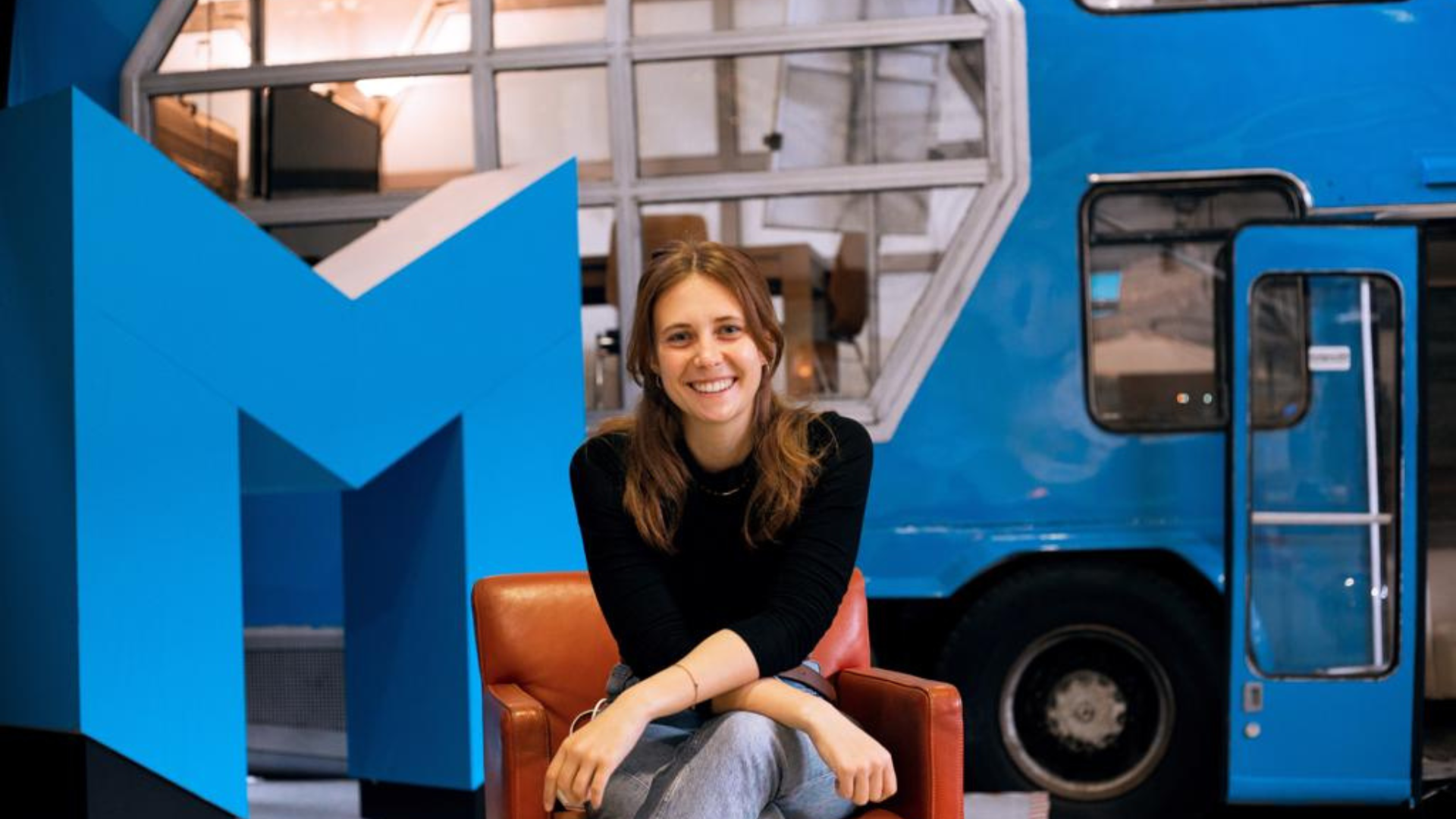
💬 And if you could chat with members of makerspace?
I’d love to learn more about the specific machines or tools members find most useful.
Furthermore, I've noticed that cleanliness can sometimes be an issue within our community. We continually strive to educate our members on the importance of placing their dishes in the dishwasher rather than leaving them on the shelf. I am genuinely curious to understand whether this is a unique behavior within our community, possibly stemming from laziness, or if it is a more widespread issue that needs to be addressed industry-wide.
💬Last but not least, where would you want to bring MotionLab Berlin next?
From the perspective of our current MotionLab team, we are extremely content with the two locations we currently have. Berlin is an excellent city, and managing these campuses keeps our small team quite occupied.
However, on a personal note, I would love to see MotionLab expand to other regions, such as South America, specifically Mexico or Argentina. It is a dream of mine to work from those locations at some point, and it would be wonderful to combine it with my current job responsibilities.
Join our book presentation in Rome
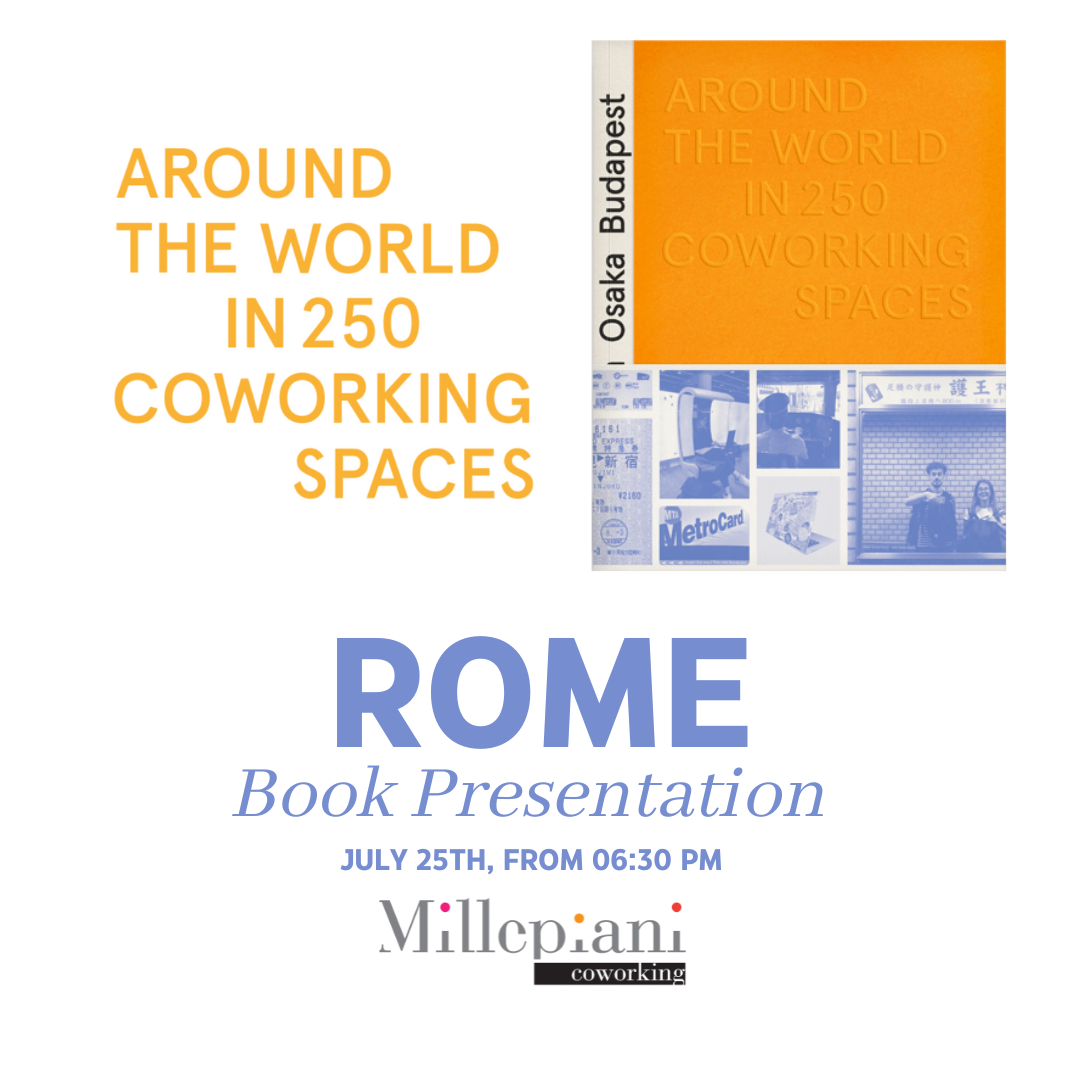
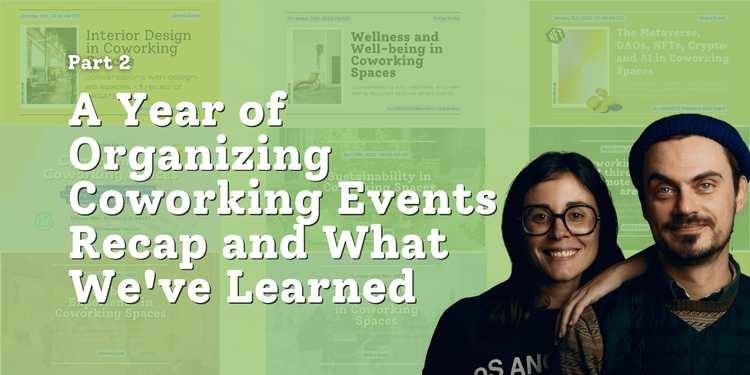




Member discussion